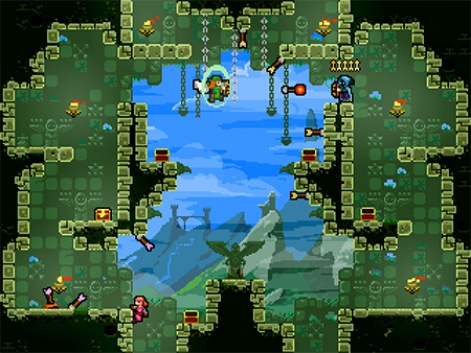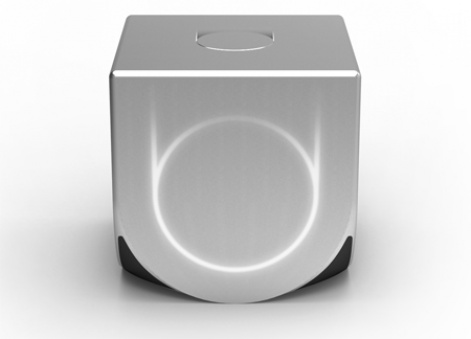It's over a month since Ouya landed on shop shelves worldwide, and stats regarding the device's performance have started to land on the desk of the world's media.
You don't need me to tell you that they're not exactly pretty.
Among the highlights are the fact that 13 of the top 20 games on the system have an eight percent attach rate.
The top seller? Matt Thorson's TowerFall, which has made about $21,000 in revenue after Ouya's cut - albeit at a $15 price and after being very heavily featured by Ouya. Oh, and only 27 percent of Ouya owners have paid out for a game at all.
On the surface, such stats appear a cause for concern for anyone whose business is invested in Ouya being a commercial success, but are they reason to panic about the device's longterm future?
The numbers game
The figure really worth paying attention to is the 27 percent one.
This is a good justification for skepticism: if the early generation of Ouya owners, the believers, the backers, and the curious are unwilling to spend money, then what's to say that later buyers will be more willing to do so?
The problem seems really to be the "you can try everything for free" model that Ouya uses. Because it's possible to sample so much free content, it gets to be quite easy to get one's fill from the device's free content alone.

Predictably, TowerFall is Ouya's top performer
Consider the Brazilian steakhouse business model.
They offer endless supplies of different types of meats and a salad bar, hoping for two things: one, that the steep entry cost will be justified by the endless supply, and secondly, that customers will fill up on the cheaper salad bar instead of the more expensive meat.
Ouya's store right now is being run like a very poorly-operated Brazilian steakhouse. Those in charge are charging people a nominal fee to get in the door, and they're giving them free run at the salad bar, along with the first serving of each kind of meat free.
As a result, what's happening is that people are filling up on the salad (the selection of experimental and 'donationware' games) and on the variety of limited supplies of meat.
Oh, and Ouya's metaphorical steakhouse is also constantly bringing out new types of meat, so that very few people feel the need to pay for additional types of meat when they can just keep getting new ones for free endlessly.
What's more, Ouya itself isn't paying to supply the meat and salad: it's the chefs that are, so the company isn't getting hurt when people decline to pay out for more meat - it's the chefs.
Free for all
I'm suddenly really hungry.
The point is, Ouya needs to do something about all the free content it's giving away for the sake of the content creators. They're the ones supplying the reasons to buy Ouya in the first place.
If Ouya can't support developers who've taken a punt on the device in its early days, then support moving forward will be severely lacking.
Is there a solution that Ouya could quickly implement? A happy medium, as it were?
A compromise may be to allow gamers to push free demos on the storefront and then allow gamers to buy the full release from within this is essentially how Microsoft operates XBLA, and even a simple step like this could give the nudge premium games need to move up the consumers' pecking order.
On a similar note, Ouya needs to stop pushing emulators so prominently on its storefont. Emulators were always going to pop up on Ouya, but the company's decision to throw its weight behind them acts as yet another barrier for premium releases.
The store may as well have a 'HERE BE EMULATORS. PLAY YOUR FAVORITE CLASSIC GAMES FOR FREE' sticker slapped on it.
Emulators can't be stopped, but they can be contained and for the sake of the rest of the ecosystem, they need to be.
Steps to success
Finally, there's also steps developers operating within Ouya can take to aid the health of the marketplace. Namely, they need to be careful just what games they offer up for free.
The more Ouya is flooded with free content without thought, the less and less its audience are going to feel the need to venture out and pay for anything. Content needs to be properly valued for developers to succeed.
Indeed, it's the value of the content that consumers are paying out for that's the one beacon of hope for me. TowerFall may not be breaking revenue records, but the fact a $15 local multiplayer-focused game could turn out to be Ouya's most successful title is actually a reason for optimism.
It begs the question as to whether Ouya and other unconsoles like it may offer up an environment where consumers are more comfortable paying out more than 99c for a game than they appear to be on smartphones and tablets.

Could Ouya end up being able to financially sustain developers that release exclusive content on it?
Early signs make that seem unlikely and TowerFall has a PC version on the way that seems almost guaranteed to outsell Ouya version based on buzz alone but the possibility of the device serving as a significant source of income for the lucky few remains on the table.
Sure, there's definite flaws in Ouya model, and the system's performance in the coming months as unconsole competitors amass not to mention Xbox One and PS4 - will be worth keeping an eye on, but developers shouldn't panic just yet.
One month is a very short time in the games industry, and Ouya could prove to have a legacy that, as of yet, is unclear.
Now, who fancies a steak? I'm paying.






















